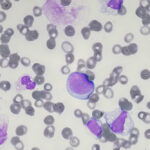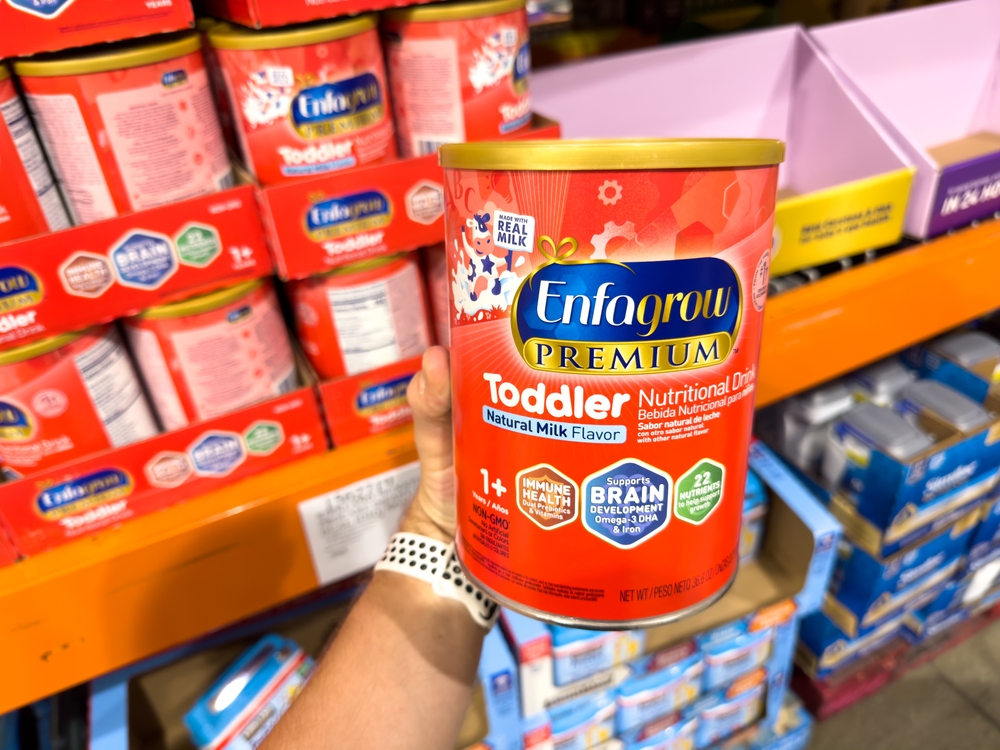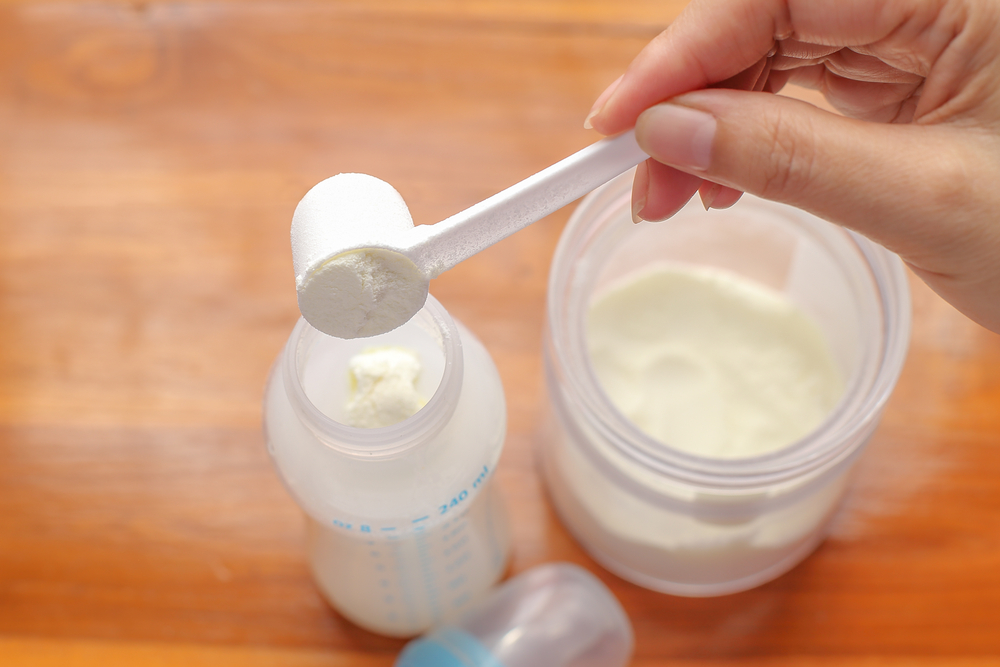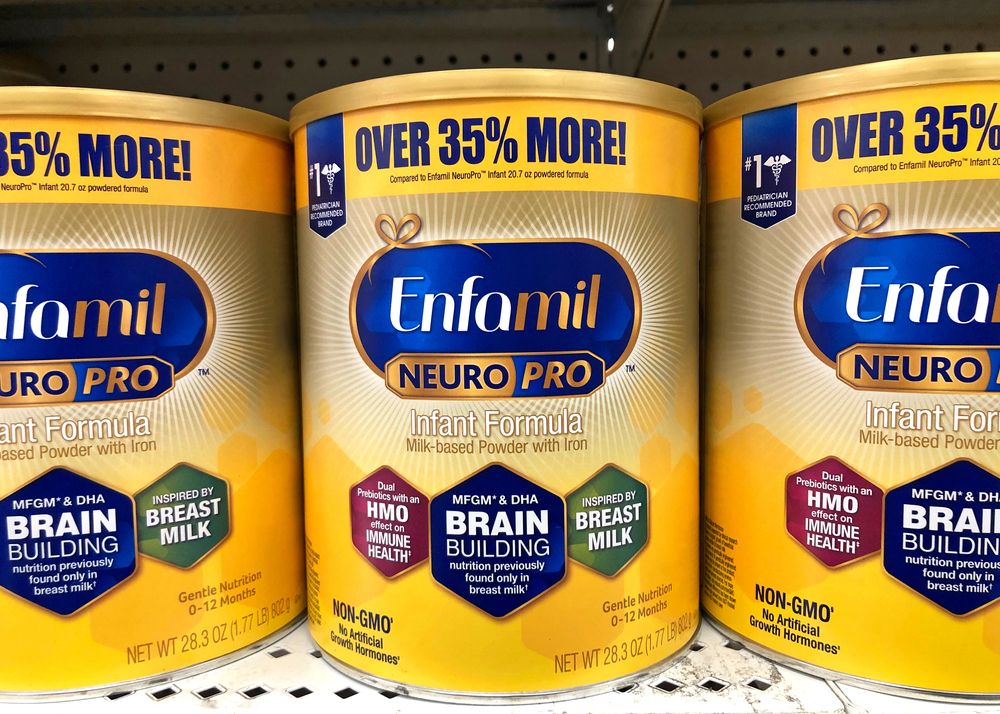NEC Baby Formula Lawsuits
About NEC Baby Formula Lawsuits
- Necrotizing enterocolitis (NEC) is a severe gastrointestinal condition that primarily affects premature newborns, causing inflammation in the intestines and posing a higher risk to infants fed cow’s milk-based baby formula instead of breast milk.
- Preterm infants fed cow’s milk-based formula, especially those weighing three pounds or less, are more likely to develop NEC.
- Parents are filing NEC baby formula lawsuits against manufacturers Mead Johnson and Abbott Laboratories for allegedly failing to adequately warn about the higher NEC rates in premature babies fed exclusively with cow’s milk-based formula.
NEC Baby Formula FAQs
What is NEC?
Necrotizing enterocolitis (NEC) is a severe gastrointestinal condition that primarily affects premature newborns, causing inflammation in the intestines and posing a higher risk to those fed cow’s milk-based baby formula instead of breast milk.
How do you know if your infant has NEC?
Watch for symptoms like bloating, bloody stools, vomiting, low heart rate, low blood pressure, diarrhea, and fatigue. Seek immediate medical attention if any NEC signs are observed.
What baby formulas are linked to NEC?
Some of the Similac and Enfamil premature baby formula products have been linked to an increased risk of NEC in preemies.
Is there a baby formula recall?
Similac and Enfamil have not been recalled for the link between cow’s milk-based baby formula and NEC. However, in February 2022, Abbott Laboratories voluntarily recalled Similac, Alimentum, and EleCare formulas due to potential Cronobacter sakazakii bacterial contamination, which resulted in illness and infant deaths.
Why are NEC baby formula lawsuits being filed?
Lawsuits are filed against formula manufacturers like Mead Johnson and Abbott Laboratories for not providing adequate warnings about the NEC risk in premature infants who consume their cow’s milk-based formula.
Who can file an NEC baby formula lawsuit?
Parents or legal guardians of premature babies who developed NEC after consuming formula may have the right to pursue an NEC baby formula lawsuit, possibly as part of a mass tort product liability claim.
How do I find a lawyer to help with a baby formula lawsuit?
Research reputable law firms experienced in product liability cases. Make sure to schedule a free consultation with a lawyer handling NEC baby formula cases before hiring someone. This will give you an opportunity to ask them questions about your case and you can determine if you feel comfortable with them representing you.

Table of Contents
Every year, millions of babies are born in the U.S. For most of these families, labor and delivery are uneventful and end with a healthy baby who doesn’t need any medical intervention. But about 380,000 babies annually — roughly 10% — arrive before 37 weeks gestation. Preterm arrival can cause serious complications ranging from breathing problems to brain hemorrhages to gastrointestinal issues. Necrotizing enterocolitis (NEC) is one such condition. NEC is an illness that inflames intestinal tissue, and it’s frequently found in premature newborns. The condition affects 1 in 1,000 premature babies and has a mortality rate of up to 50 percent. Babies who are fed formula instead of breast milk are more likely to develop the illness.
Premature infants might be sent to the neonatal intensive care unit (NICU) and given preemie baby formula in the days following birth. Baby formula is a milk alternative that contains vital nutrients and vitamins, and for parents of full-term infants, it hasn’t been shown to cause complications. But it’s been linked to an increased risk of NEC in babies born prematurely, especially those born weighing three pounds or less.
The American Association of Pediatrics recommends exclusively breastfeeding for the first six months of a baby’s life because of the health benefits of breastmilk. Still, parents may choose to use baby formula for a variety of reasons. In most cases, it’s perfectly safe, but formula consumption in premature babies increases the chances of NEC. One study found that preterm infants who are formula fed are 138% more likely to develop necrotizing enterocolitis.
One study found that infants fed preemie formula were twice as likely to develop necrotizing enterocolitis than those who consumed donor breast milk. Formula manufacturers are facing lawsuits from families who allege that the companies acted negligently. Parents are suing Mead Johnson and Abbott Laboratories, the manufacturers of popular formula brands Enfamil and Similac. These lawsuits say manufacturers didn’t adequately warn hospitals and parents about higher NEC infant rates in babies fed formula exclusively.
What is NEC in Babies?
Necrotizing enterocolitis causes inflammation of the small or large intestine. The inflammation can kill tissue in the colon and create a hole in the intestinal wall. Premature babies are at higher risk because they have a harder time fighting off infections and often struggle with blood and oxygen circulation. In premature babies with underdeveloped digestive systems, breast milk helps with immunity and is easier for their bodies to break down. Cow’s milk-based formula is more difficult for babies to digest, regardless of age.
Low oxygen levels at birth also increase the risk of NEC. Doctors hypothesize that not having enough oxygen and blood flow makes it more likely for a baby to be diagnosed with NEC. Oxygen issues can cause decreased blood flow throughout the body, which can lead to intestinal problems. Existing intestinal infections also make NEC more likely.
Signs of NEC typically appear within two weeks after birth. An infant diagnosed with NEC might have bloating, bloody stools, and vomiting. Depending on the severity of the infection, they may also struggle to breathe and have a low heart rate. Low blood pressure, diarrhea, and fatigue are also common signs of the illness. When not treated in time, NEC can cause sepsis and eventually lead to death.
Doctors diagnose the condition with an abdominal X-ray to look for air bubbles in the intestines. They may also order blood tests. Once diagnosed, the baby will receive all nutrition through an IV instead of drinking milk. Medical professionals might also decide to insert a tube to keep the stomach empty and to administer antibiotics. Ideally, doctors will treat the disease without surgery, but in some cases, medical professionals will have no choice but to perform surgery and completely remove the intestine. The procedure has a profound effect on long-term quality of life, and post-surgery complications are common. A high percentage of babies undergo more operations down the road.

What Is The Best Formula For Premature Babies?
When searching for the best infant formula for premature babies, it’s important to know that they’re all approved by the U.S. Food and Drug Administration before being sold. The agency has stricter regulations for formula than ordinary food items because it’s the only source of nutrition for a “vulnerable population” during a critical developmental stage. In the United States, a handful of companies produce almost all infant formulas. Premature baby formula brands typically fall into two categories: Those only used under medical supervision and those available over-the-counter for purchase after being discharged from a hospital.
Similac Special Care and Enfamil Premature are both frequently used in the NICU. After getting home, parents can pick from a variety of preemie formulas. A few products have been named in lawsuits against formula manufacturers. Enfamil formula types include Enfamil Human Milk Fortifier, Enfacare Powder, and Enfamil NeuroPro EnfaCare Infant Formula. Similac formula types include Similac Special Care, Similac Neosure, and Similac Human Milk Fortifier.
Right after a baby is born, parents are inundated with free samples and gifts from formula companies who boast that their products are just as beneficial as breastmilk. Hospitals send new parents home with formula samples and pamphlets about the products. Parents unfamiliar with necrotizing enterocolitis don’t realize the possible impact formula might have on their children’s health. Some of them are filing lawsuits to hold formula companies accountable for their marketing.
NEC Infant Formula Lawsuits
One lawsuit was filed this summer in Illinois against the makers of Enfamil and Similac. The plaintiffs include parents who lost their children to necrotizing enterocolitis. They claim the manufacturers knew the risks of NEC in premature infants and still promoted their formulas as a suitable alternative to breast milk. The lawsuit also alleges that product safety warnings were confusing and that the brands spend billions of dollars advertising their formulas as a superior substitute for human milk.
The suit is one of many being filed around the country. Parents are suing Abbott Laboratories and Mead Johnson & Company for failure to warn about health risks, negligent misrepresentation, selling a defective product, wrongful death, and more. There’s a chance the lawsuits could be consolidated into multi-district litigation and transferred to one court. Along with individual cases, several class-action lawsuits are in the works.
Science has shown that preterm babies benefit from human milk over cow’s milk-based formula. According to the American Academy of Pediatrics, researchers have found that NICU babies who received breastmilk scored higher for mental, motor, and behavioral skills as toddlers. But offering breast milk to a baby isn’t always easy. Some mothers struggle to produce milk after giving birth weeks earlier than expected, and not everyone has access to donor breast milk.
Enfamil preemie formula and Similac preemie formula are both marketed as safe, healthy options for preterm infants, so it’s not surprising that hospitals and parents opt for them. They may not realize they have other choices, like human milk-based formula. It’s seen less in hospitals, but companies like Prolacta create preemie formulas derived entirely from human donor milk.
When To Contact A Lawyer
Research shows a clear connection between preemies who were fed cow’s milk-based formula and necrotizing enterocolitis. If your premature newborn was fed formula in the days after birth and later developed NEC, contact an attorney to discuss your potential legal options. Even an NEC preemie who doesn’t need surgery can still suffer long-term side effects, and the medical bills add up quickly. Regardless of whether formula manufacturers acted maliciously, they disregarded the association between formula and NEC when marketing to parents and doctors. This alone could be enough for plaintiffs to win a court case.
An initial meeting with an attorney is noncommittal and mainly a place for you to ask each other questions. Most lawyers offer free consultations and take a percentage of the settlement you receive instead of asking for payment upfront — that means they only get paid if they win. During a consultation, they’ll review your NEC newborn’s medical records and tell you whether you have the potential for a successful case. Your attorney will probably seek compensation for medical bills, lost wages, and pain and suffering on your behalf. As baby formula lawsuits continue to move through the court system, it’ll become more apparent just how much manufacturers knew about the potential dangers of their products and whether they should’ve done more to warn consumers.



















